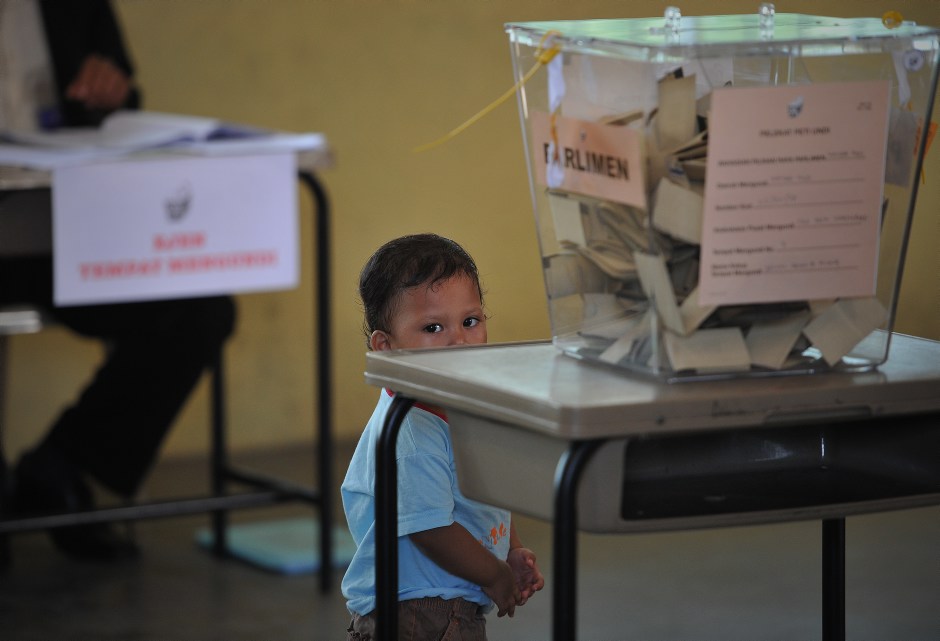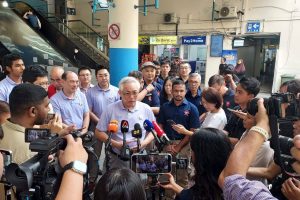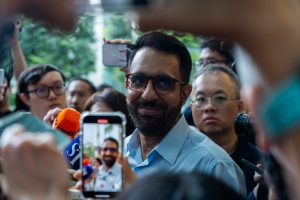All images by Firdaus Latif, licensed under CC BY-ND 2.0, unless otherwise stated.
As Malaysians, we’re taught in school that one vote could change our world. That optimism is lost on me.
To preface, I studied at private Chinese schools but was sent to Australia for my tertiary education. I held a more international worldview and was often exposed to different cultures and ideas.
ADVERTISEMENT
Growing up, my weekends were spent golfing and meeting people from all walks of life, including my father’s business partners and drinking buddies. They often engaged in spirited discussions and debates about politics and government policies.
Yet, despite all that second-hand exposure and access to a worldview many would consider privileged, I have never felt ready to vote.
Look at your average Joe—look at me. How much political exposure or education do you think I have? Having nearly zero knowledge of the Malaysian political system and its parties makes me feel unfit to vote. Can you trust me to make the right choice?
I posit that it is the mandate of anyone who doesn’t know everything there is to know about politics and policies to abstain from voting. For me, ignorant voting is not, by any measure of the imagination, an informed decision. It is a risky gamble.
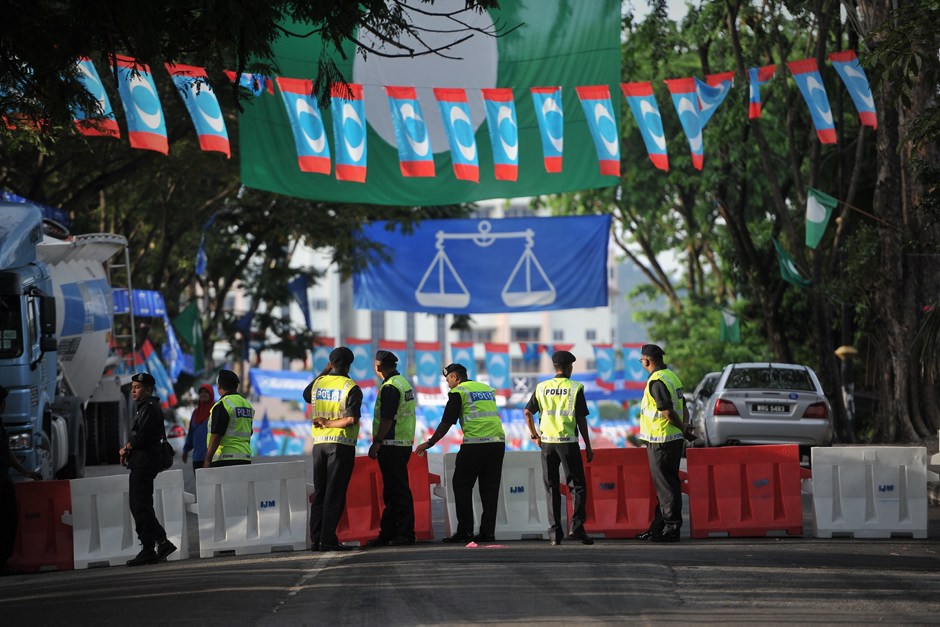
Defining Malaysian Democracy
It’s three weeks before the general election, and I’m having chicken rice with Nizam*. He is in his 30s, and, like me, he’s never voted. Dressed in an oversized shirt and a cap, it makes him look like a hip-hop artist.
While he’s no artiste, he works in media—meaning that Nizam cannot express his political views publicly. He’s been in the same company for over a decade. Every year, Nizam goes through media compliance training that reminds him to maintain a neutral political stance at work. Being apolitical might be something that bled into his life outside the office.
“What do you think democracy means?” I ask. Nizam guffaws.
“I need to Google this,” he whips out his phone, but I stop him. I want to hear his unfiltered thoughts.
He puts his phone away and says: “At the risk of sounding like an idiot, democracy means that everyone in the country has a voice to decide what they want, right?”
I nodded my head and read Google’s definition aloud. Democracy is a form of government in which the people have the authority to deliberate and decide legislation or to choose governing officials to do so.
“Call it what you want,” Nizam says, “But to me, it’s a popularity contest.”
I can’t argue with that sentiment. There’s a running joke amongst Malaysians: Politicians pop out of obscurity and actively contribute to the community only when elections draw near.
ADVERTISEMENT
It is a common sentiment I hear being expressed in sarcastic tones. “Who is he?” one might ask while gesturing to the flags and banners that decorate the streets, campaigning for votes. Aside from being a traffic nuisance, those flags seem to scream: vote for me because my party is rich, and we can make a difference.
The Malaysian government, fashioned after the Westminster system, is a three-part parliament.
The first comprises 222 seats, chosen by the rakyat (citizens)—they make up the People’s Assembly. The second is 70 seats reserved for the higher parliament or senators. The last is the king, Yang di-Pertuan Agong, who is conferred by rulers of the nine Malay states.
When the General Election rolls around, the rakyat vote for a party they want to represent them. Whichever party wins the most seats will form the government and be responsible for choosing the next prime minister.
If that isn’t complicated enough, numerous political parties can join together to make coalitions after the election to win enough seats to form the government.
While voting isn’t compulsory in Malaysia, many, like myself, feel it’s a hassle to cast votes at designated polling centres. Especially in the digital age where virtually everything can be done online.
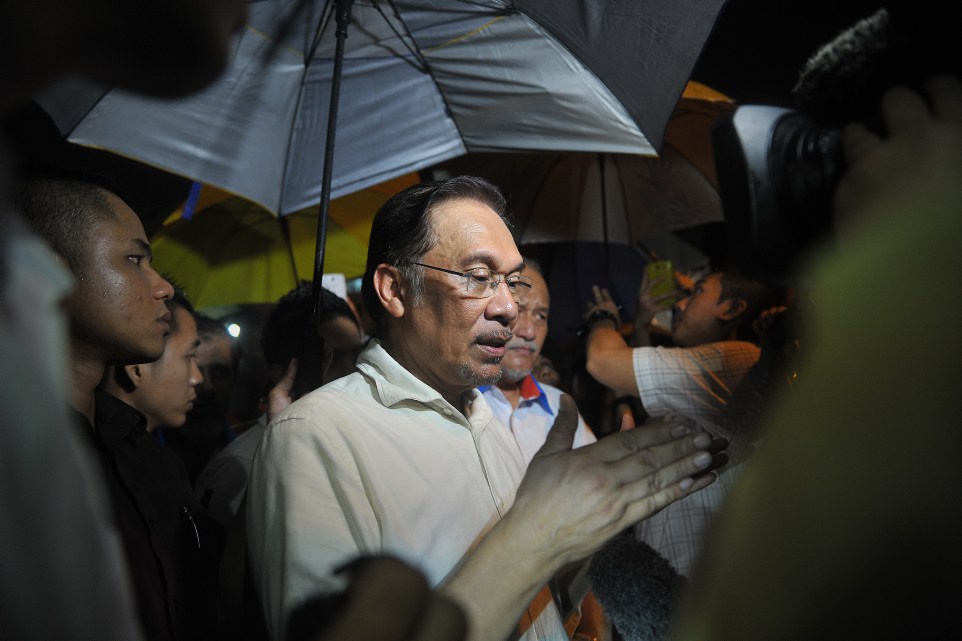
The Right To Vote ≠ The Right Vote
“I’ve never been interested in politics. It just never seemed relevant to me,” Nizam shares as I lean over to give him a high-five. “But politics is trending right now, which makes people care and truthfully, it piqued my interest.”
Nizam has never voted because he “felt like my one vote won’t matter” and is “just not well informed about politics to know who I should vote for.”
I found the two statements contradictory because if he felt his one vote didn’t matter, it wouldn’t matter who he voted for, right?
“Yes, but if I am going to use my vote, I want to ensure it goes to the best possible candidate.”
Nizam’s apathy towards politics eventually gave way to a glimmer of interest when political content started showing up on his social media feed. That’s when he started paying attention and talking to his friends about it.
When he discovered that his friends were also interested in politics, he wanted to get more involved. “I guess at the end of the day, if my friends vote, I would too.”
“But that isn’t a good reason to vote,” I point out.
“Yes, but I would do it just to fit in,” he admits without skipping a beat.
A Change of Heart
When Nur Anisa Bte Hadzman, 31, heard that I was writing a political piece, she volunteered to talk about it “because there are not enough people our age talking about politics.”
Anisa works in e-commerce, and though she has never voted, she has been a presiding officer for the state elections. It’s a beautiful irony that begs unpacking.
“My mum worked for the government and told me about the vacancy to count ballots. Since I had nothing better to do, I joined her… and let me tell you, there were these ah peks and ah mahs rolling up in their wheelchairs to vote, but there was not even one Gen Z voter in sight.”

“How about our generation?” I asked. “Any voters our age?”
“The youngest voter I remember was 26 or 27. There were maybe 20 or 30 in that age bracket for every one hundred voters,” Anisa recalls. She felt it was a considerably small number, especially since we, the young adults, are most affected by government policies since we’re starting families and building quality life.
“So why didn’t you ever vote?” It didn’t make sense how Anisa seemed to brim with hope and reform, yet she has never cast a ballot.
Surprisingly, her answer is exactly the same as mine and Nizam.
“I didn’t know who to vote for,” she admits.
“I never cared about politics until Najib’s fall in 2018.” It was the drama and scandals that piqued Anisa’s interest.
“For the first time in history, BN (Barisan Nasional, a coalition of right-wing parties and the ruling government from 1957 to 2018) lost!” Anisa tells me excitedly as if sharing a plot twist of an Astro drama series. “It was such havoc, a huge hit for Malaysia, and, honestly, a wake-up call for me.”
“I used to think my vote didn’t matter because nobody cared. You know, lah, Malaysians. We are very, well, uninvolved.”
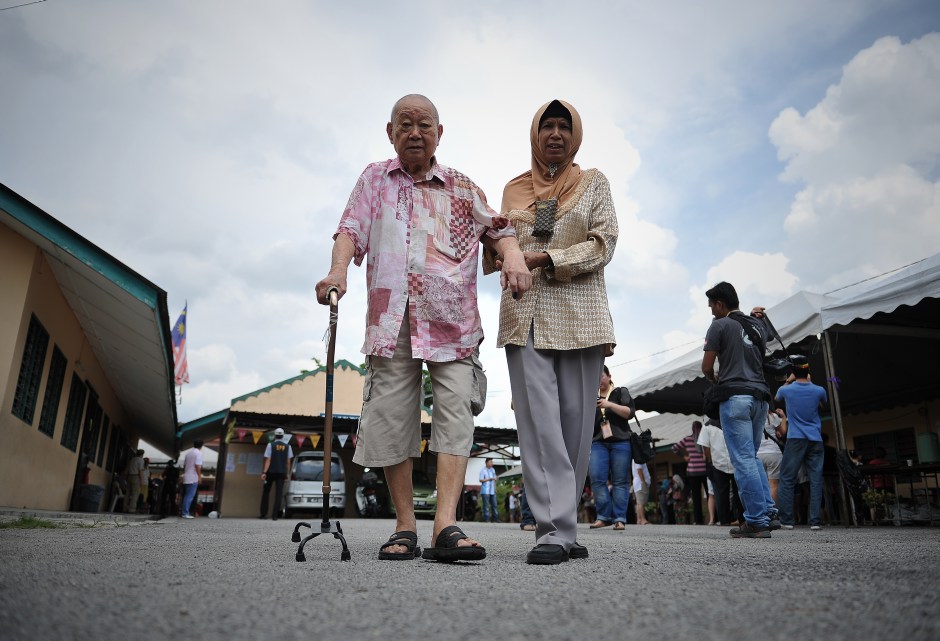
Still Unsure
In many ways, I concur. We live our lives as if our actions have little consequence. Voters don’t vote because they don’t think it would make a difference. It’s the same indifference we have towards corruption and bribery because, truthfully, what can we do about it?
“But,” Anisa continued, “when BN lost to PH (Pakatan Harapan, the opposition coalition), I got the message loud and clear: There are Malaysians that give a shit! Knowing that other people care makes me care. Seeing that there is a chance for change gives me hope, and that’s why I’m trying to learn more about politics.”
A pattern is forming, and I’m secretly glad that my generation is both mature and mindful. We aren’t sheep to be influenced by the media or swayed to vote simply for the sake of voting.
And even if we feel our vote is not all that powerful, we want to make it count. We’re not interested in making a flippant choice because, whether we care about politics or not, we know that politics is bigger than us.
Still, some know it’s important to vote but hold back because they can’t shake off the lack of transparency in the political landscape.
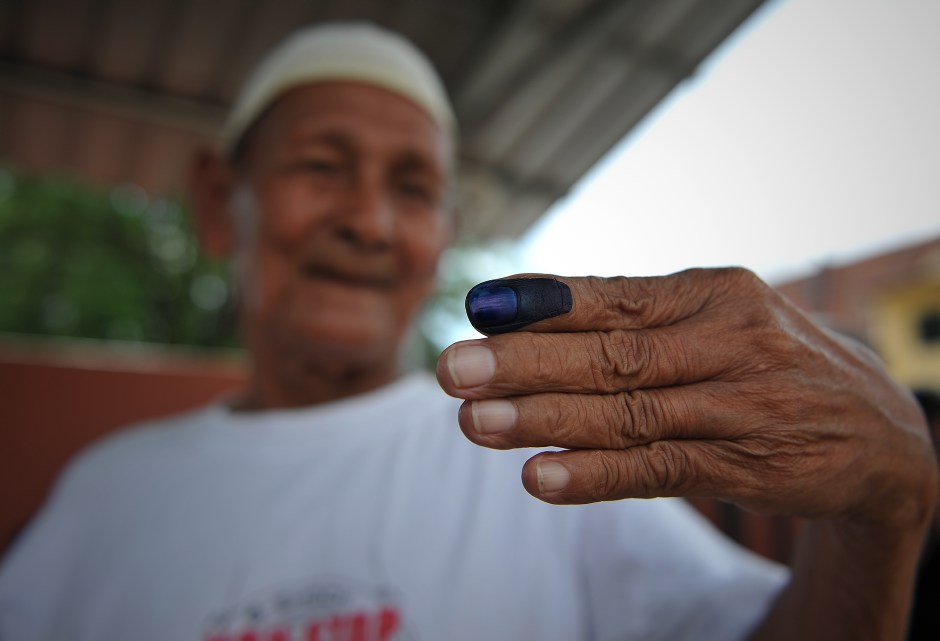
Mitchell* is one such person. The 32-year-old project construction manager has never voted because “I believe that the system is rigged in favour of the government-backed parties.”
Surely Mitchell doesn’t think that anymore after the landslide election of 2018. I reminded him that even after the blackouts and the phantom voters, BN lost to the opposing coalition. Didn’t that prove that no matter what underhanded tactics the government employed, it would no longer be enough to halt true democracy?
I consolidated all that into three words: “But Najib fell.”
“Yes, but he fell because UMNO needed him to take the fall,” Mitchell replies, convinced. “He embezzled too much money, and the government was forced to do something.”
“Wasn’t Najib the government? Why would anyone with so much power subject himself to jail?” I retort.
“How do we even know he’s actually in jail?”
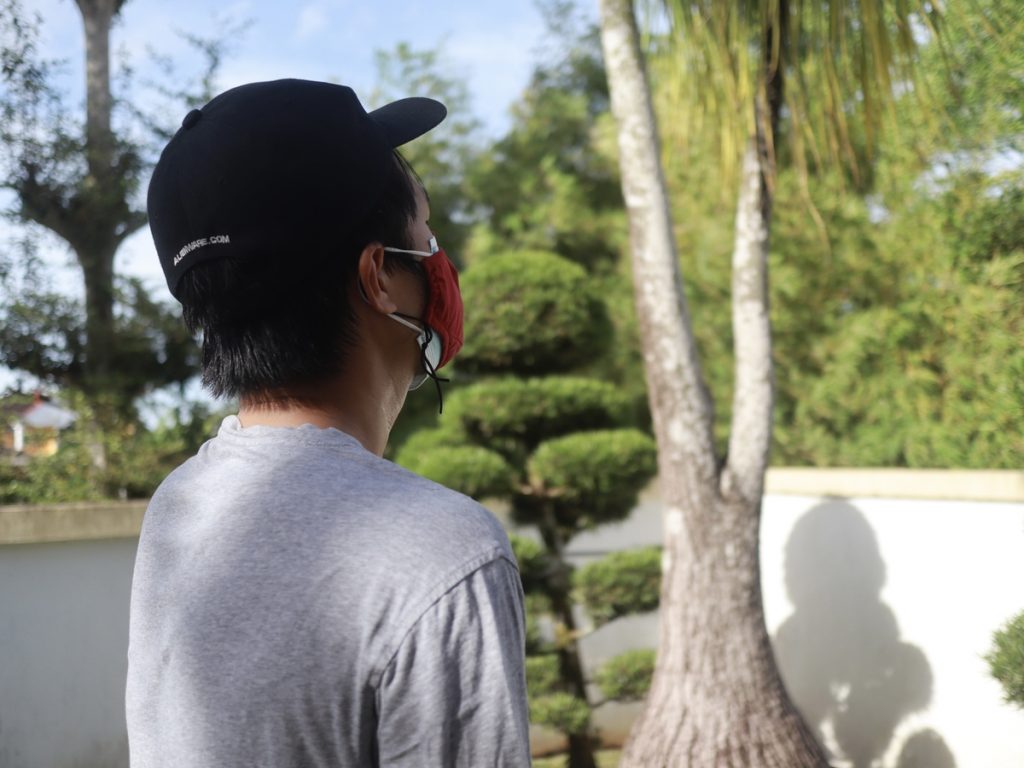
UNDI18 Repercussions
Perhaps older voters being too jaded to vote would be less of a problem this year with the introduction of Undi18, passed on July 19, 2019, which lowers the voting age to 18. This bill added 5.8 million new eligible voters to the existing pool.
According to its website, “Undi18 is a Malaysian youth movement that successfully advocated for the amendment of Article 119(1) of the Federal Constitution to reduce the minimum voting age in Malaysia from 21 to 18 years old.”
Reactions about this new bill from the three millennials I spoke to for this story were mixed.
Anisa is entirely supportive of Undi18, claiming it will “encourage young adults to be more involved in our country’s political process.”
She believes that being able to vote will help foster youth interest in politics, which is why the search term ‘UNDI PRU 15 2022’ is trending on TikTok.
On the other hand, Mitchell found the whole Undi18 operation a farce. When I asked why he felt that way, he said, “the hearts and mindsets of youngsters can easily be bought and manipulated. The majority are still too naive to vote.”
I’m on Mitchell’s side. UNDI18 may automatically add 5.8 million eligible voters to the electoral roll, but it also equates to 5.8 million people who might not understand the power that they wield.
When I brought this up to Nizam, he admitted that he wasn’t mentally mature enough to vote at 18 but believes that 18-year-olds today “are a lot more mature than we were at that age due to social media.”
He shows me a politician he follows on Instagram, stating that “he’s the reason I’m interested in politics now.”
In one of the Instagram reels he shows me, a decent-looking man can be seen doing pushups while convincing his viewers to register as voters because “it’s as easy as A, B, C, 1, 2, 3.”
This sprightly gentleman is none other than 29-year-old Syed Saddiq Syed Abdul Rahman, who was first appointed as the Minister of Youth and Sports in 2018 but has now formed his own party called MUDA (Malaysian United Democratic Alliance)
For me, Syed Saddiq is a Pied Piper. His efforts to ensure the Undi18 bill gets passed are self-serving, given his campaign outreach via social media platforms which endears him to the youth. What good would all this campaigning do if the people he targets can’t exercise their right to vote?
“Is Syed Saddiq a candidate? Can I vote for him?” Nizam asks, almost as if confirming my theory.
Is the Grass Less Corrupt Elsewhere?
“One of my tenants is taking three days off to balik kampung and vote,” Bong*, a 32-year-old food court supervisor, complained to me when I mentioned the upcoming election.
“That’s dedication–” I wanted to say, but he quickly added, “If I gave you RM300 (S$90) to vote for me, won’t you also take an RM40 (S$12) bus home to vote?” Bong explains. Apparently, vote buying is a common tactic Malaysian politicians use to boost their numbers.
When I asked whether I could interview him, he clammed up immediately. He told me I shouldn’t be writing about these things because it’s politics. “It can be dangerous. There may be repercussions.”
“You speak of them as if they are gangsters,” I laughed.
“They are worse than gangsters, miss,” he replies, almost too seriously. “Politicians are above the law.”
“Do you vote, then?” I asked, and his answer was a resounding yes. I ask him why—if politicians are the scumbags that he believes they are, why bother?
“I don’t know,” he admits, “I just vote because my family votes.” I wanted to know who Bong voted for before, but in my heart, I already knew the answer.
“Whichever party my family votes for.”
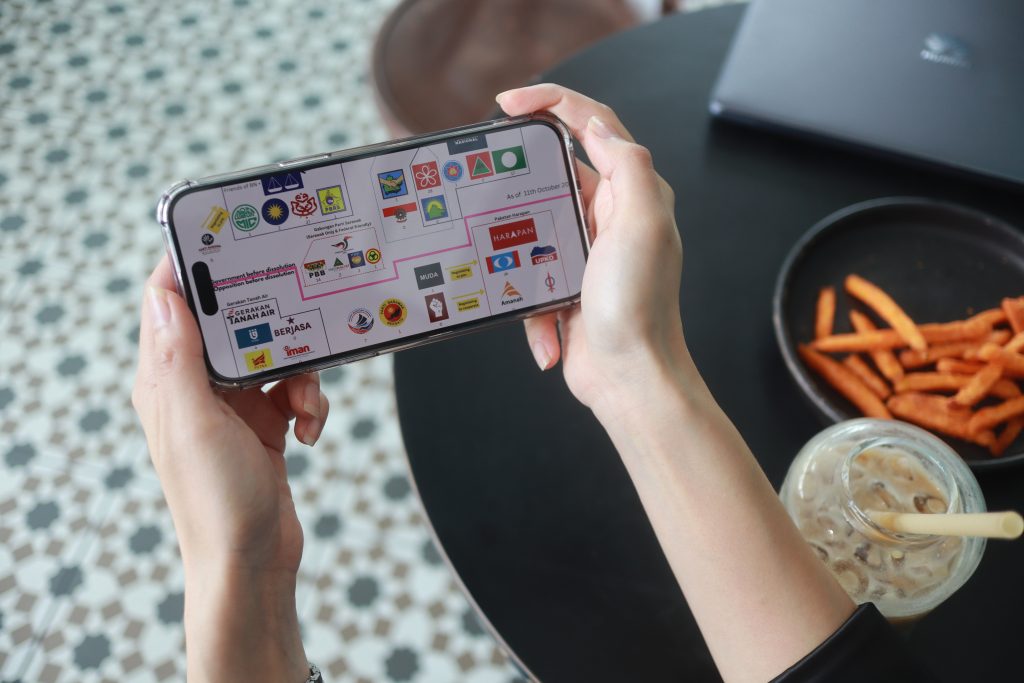
His answer is reminiscent of what Nizam said to me, and it’s cause for concern. Are people voting for the wrong reasons? Is it still democracy when you don’t know what you’re voting for? In such cases, is not voting the lesser of two evils?
Mitchell doesn’t vote because he thinks that the polls are rigged. Nizam, Anisa, and I chose not to vote because we weren’t confident that we would make the right choice.
“But I find that the more I learn, the more I feel like I need to do something. Yes, Malaysian politics is corrupt, but there is still hope. There was the Bersih movement, and then Barisan Nasional fell—the rakyat has power,” Anisa explains.
In many ways, I agree with Anisa. There has been some encouraging movement on the democracy front, not least helped by the presence of a free and unencumbered social media scene.
But while putting democracy in the palm of everyone’s hands is a sure way of swaying the undecided electors, it can also backfire and be a form of confirmation bias for would-be voters who have little faith in the government.
As for me, I will continue holding my tongue and my vote for GE15 until I am sure my vote will count in all the ways that matter.
